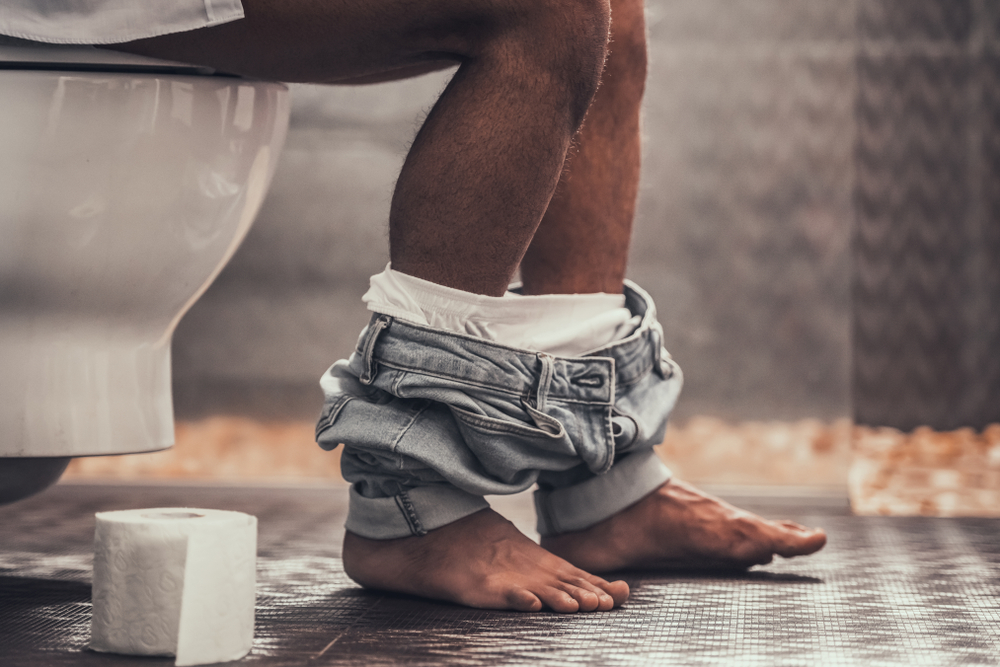Constipation affects millions worldwide, yet many suffer in silence due to embarrassment or uncertainty about treatment options. Recent research reveals that this common condition significantly impacts quality of life, affecting everything from daily activities to emotional well-being. Understanding the body‘s natural rhythms and recognizing when something isn’t right marks the first step toward finding relief.
Understanding normal patterns
Medical experts emphasize that normal bowel movements can vary significantly among individuals. While some people experience movements three times daily, others maintain perfect health with just three weekly movements. The key lies not in comparing yourself to others but in recognizing your personal patterns and noting when they change.
The power of hydration
Proper fluid intake plays a crucial role in maintaining digestive health. Women should aim for approximately 11.5 cups of fluids daily, while men need about 15.5 cups. Water helps maintain the moisture content of digestive matter, making it easier to pass through the system. Additionally, staying well-hydrated supports overall body function and helps prevent future digestive issues.
Fiber’s fundamental role
Dietary fiber serves as nature’s digestive aid, helping maintain regular bowel movements while supporting gut health. Whole grains, fruits, and vegetables provide essential fiber that adds bulk to stools and helps them move through the digestive tract more efficiently. For those struggling to get enough fiber through diet alone, natural supplements like psyllium can provide additional support.
The coffee connection
Coffee’s natural stimulant properties extend beyond mental alertness to digestive health. The beverage stimulates colonic activity, often promoting bowel movements within minutes of consumption. However, it’s important to balance coffee intake with proper hydration, as excessive consumption can lead to dehydration.
Movement matters
Physical activity significantly impacts digestive health, with regular exercise promoting healthy gut mobility. Even moderate activity like walking can stimulate the digestive system and help maintain regularity. Movement helps food move through the digestive tract more efficiently while supporting overall health.
Healthy fats for gut health
Including healthy fats in your diet can help ease constipation naturally. Foods rich in healthy fats, such as avocados and olive oil, help lubricate the digestive system and promote easier passage of stools. These fats also support the absorption of essential nutrients and contribute to overall digestive health.
The warmth factor
Heat therapy can provide immediate relief from constipation discomfort. Applying warmth to the abdomen, combined with gentle massage, can help stimulate bowel movements and ease discomfort. This natural approach proves particularly effective when combined with other remedies.
Probiotic power
The role of beneficial bacteria in digestive health cannot be overstated. Probiotic-rich foods like yogurt and fermented vegetables support healthy gut flora, promoting regular bowel movements and overall digestive health. Regular consumption of these foods can help prevent future constipation issues.
Magnesium’s role
Magnesium supplements can effectively relieve constipation by drawing water into the intestines and promoting muscle contractions. However, proper dosage proves crucial, and medical supervision ensures safe and effective use of this mineral supplement.
Beyond natural remedies
When natural approaches prove insufficient, various over-the-counter options can provide relief. These range from gentle stool softeners to more aggressive treatments like suppositories or enemas. However, these should be used judiciously and under appropriate guidance to avoid dependence.
Prevention strategies
Long-term prevention of constipation requires consistent attention to lifestyle factors. Regular physical activity, proper hydration, and a balanced diet rich in fiber form the foundation of digestive health. Avoiding processed foods and maintaining awareness of medication side effects also plays crucial roles in prevention.
Recognizing warning signs
While occasional constipation rarely indicates serious problems, certain symptoms warrant immediate medical attention. Rectal bleeding, persistent abdominal pain, or dramatic changes in bowel habits should prompt consultation with healthcare providers to rule out underlying conditions.
The role of stress
Mental and emotional stress can significantly impact digestive health. Stress management techniques, including meditation, deep breathing exercises, and regular physical activity, can help maintain regular bowel movements and overall digestive wellness.
Building healthy habits
Establishing regular bathroom routines and paying attention to your body’s signals helps maintain digestive health. Creating a comfortable environment and allowing sufficient time for bowel movements supports natural body rhythms and promotes regularity.












